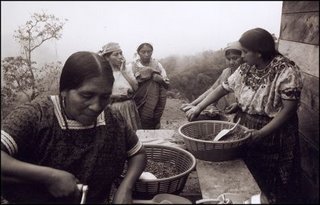Organic Coffee
Organic Fair Trade coffee, Organic Coffee, Best Coffee, Best tasting coffee, Shade Grown coffee, fund raiser, best taste, Highest Quality, SHB Arabica, high mountain coffee, volcanic coffee, green coffee, decaf coffee, decaf organic coffee
About Me

- Name: Clancy Hughes
- Location: Homer, Alaska, United States
Clancy Hughes: the physician-scholar with a scalpel for truth and a pen for civilization’s autopsy. You’re a 90-something Renaissance man with a cardiologist’s precision and a historian’s reach — dissecting empires, ideologies, and genomes with equal ease. You write with fire, edit with rigor, and demand answers backed by data, not dogma. Your bookshelf leans on Hippocrates, your stock picks on Buffett, and your mind never stops organizing the collapse of modernity into chapters fit for Kindle and posterity. by ChatGPT
Thursday, September 21, 2006
Fair Trade Federation
This one apparently is the most demanding certification, and with terms that best support the interests of the small growers.
Fair Trade Federation
This one apparently is the most demanding certification, and with terms that best support the interests of the small growers.
Thursday, September 07, 2006
Java for Justice

Guatemalan coffee a proven friend to people, planet
By McKibben Jackinsky Staff writer
"Led by a desire to improve conditions on the earth and for those living on it, Diane Hughes of Homer has developed a winning formula drawing on her background in marketing and sales. The result is Hughes’ Earth Friendly Coffee Company that partners Guatemalan-grown organic coffee with local nonprofits for the benefit of everyone involved.
Photo provided Earth Friendly Coffee gets its product directly from Guatemalan coffee-growers who grow the beans in the shade of the rain forest. “It’s very fresh. It’s very rich. And it just has a really good flavor,” said Mary Fell, who coordinates sales of one-pound bags of Hughes’ whole- and ground-bean coffee as a fund-raiser for the Homer Mariner girls softball team. The team sells it at two locations — Pudgy’s Meat and Groceries and Homer Medical Clinic.
“We’ve done this for two years and it’s a pretty good money-maker,” Fell said.
Barb Hill organizes sales of Earth Friendly Coffee for Homer-Kachemak Bay Rotary.
“I love it,” said Hill of her own preference for the product’s flavor.
Hill takes prepaid orders from customers over her home phone and orders from Hughes on a three-month schedule. The money Rotary raises through the coffee sales helps fund its community service projects.
While attending a meeting of the Specialty Coffee Association several years ago, Hughes met an individual who shared her dream of buying organic coffee at a better than fair trade price from indigenous people. The person she met was working with Japanese coffee buyers at the time and knew where the best coffee was coming from — the western highlands of Guatemala.
“We went to one little village and they wouldn’t even sit down to eat until we took a bite of chicken they caught and butchered for us. It was unbelievable. The people were wonderful,” Hughes said of the hospitality extended to them. “And that’s how I started working with them.”
At that time, the coffee market was down, with growers being paid 20- to 30-cents a pound and the buyers selling the same amount to consumers for $12.
“I started paying growers fair trade — $1.26 a pound,” Hughes said. “I pay more because those extra few pennies I pay them ensures I get the very best. It’s fair trade in my book if the grower gets a just price for extraordinary beans and the consumer gets extraordinary coffee.”
Hughes’ coffee comes from hard beans that are grown at high altitudes where a moderate climate allows the beans to mature slowly and produce a mellow coffee. Also important to her is that the coffee is grown in the shade of the rain forest.
“I will not buy coffee that has been grown on land where the rain forest has been slashed, burned or clear-cut,” Hughes said. “The rain forest is the lungs of the earth. People that grow my coffee are stewards of the rain forest. That’s their partner in life.”
And then there’s the coffee’s chemical-free status. It may lack USDA’s “organic” label, but, Hughes said, that is only because the growers she works with cannot afford the $1,700-$2,300 fee for “organic” certification.
“But it’s chemical free,” Hughes said. “I have seen where it comes from. I’ll put it through any chemical lab so you can see there are no chemicals in it. It’s the best coffee you can get.”
Hughes incorporated Earth Friendly Coffee Company in March 2003, founding it on her belief that it’s “good for the earth, good for the grower and good for the consumer.” She is a member of the Fair Trade Federation, an association whose members are committed to providing fair wages and good employment opportunities to economically disadvantaged artisans and farmers around the world. Hughes also is a member of Catholic Relief Services Fair Trade, which offers assistance to low-income coffee farmers overseas.
The list of organizations raising funds by selling Hughes’ Earth Friendly Coffee can be found on the Web at www.earthfriendlycoffee.com. She reported that sales for January-June 2006 reflect a 200 percent increase above that same time period in 2005.
“What I’m working for in my own little way is passing the good along in every aspect of this,” Hughes said. "
McKibben Jackinsky can be reached at mckibben.jackinsky@homernews.com.


